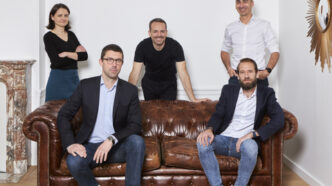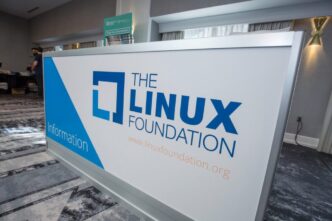The European cybersecurity market is evolving fast. Driven by both increasingly complex threats and new regulatory frameworks like the NIS2 directive. These changes are putting pressure on organizations to enhance their security posture. Creating a huge opportunity for managed security service providers (MSSPs). French cybersecurity startup Sekoia.io is positioning itself right at the center of this shift with its AI-powered SOC platform designed to scale rapidly through an indirect distribution model.
Backed by a fresh €26 million Series B round, Sekoia.io is aiming to expand its platform globally while strengthening its automation and artificial intelligence capabilities. The round was led by impact-driven investor Revaia, alongside UNEXO and existing backers Bright Pixel Capital, Omnes Capital, and Bpifrance. With this new investment, the startup has now raised €60 million since inception.
The company’s CEO and founder Freddy Milesi said the funding will help advance their work on agent-based AI while expanding international operations and deepening relationships with service partners across Europe and beyond. According to Milesi, one in four real cyber threats detected on the platform in 2024 were identified entirely through Sekoia.io’s proprietary AI and intelligence tools. That level of automation could be a game-changer, especially in a sector still grappling with talent shortages and alert fatigue.
Founded in France by Milesi and CFO Thérèse Favet in 2022, Sekoia.io builds on more than 15 years of experience in the field. The company started as a consulting firm in 2008 before pivoting into a cybersecurity technology vendor. This background allowed the team to see firsthand the challenges that security teams face in correlating real-time alerts and making fast, accurate decisions. With that insight. They developed a next-generation AI-SOC platform that helps teams detect threats, respond faster, and integrate threat intelligence without the complexity of traditional security stacks.
What sets Sekoia.io apart from competitors is its ability to deliver high-performance security tools that are accessible even to small and mid-sized enterprises. The platform is designed to be easy to deploy through MSSPs. Enabling service providers to offer their clients an advanced, AI-powered SOC experience without the cost or complexity of building it themselves.
At the heart of the platform is a commitment to automation, threat intelligence, and interoperability. Sekoia.io integrates with more than 200 third-party tools and offers a central view of an organization’s digital infrastructure. Its AI features do more than surface alerts—they analyze behavior, understand context, and assist analysts during incident response. This human-in-the-loop approach increases productivity while preserving decision-making control.
The platform also delivers native support for Cyber Threat Intelligence. Providing SOC teams with insights on state-sponsored actors and cybercrime groups, enabling more proactive defense. With built-in generative and agentic AI tools. Sekoia.io ensures that even in the face of rising alert volumes and analyst burnout. Teams can respond quickly and accurately.
Today, Sekoia.io operates in four countries and works with about 50 MSSPs. Its client roster includes major French institutions like EDF, Vinci, SNCF, Mirakl, Marlink, and the Ministry of Armed Forces. The company is on a mission to become the European leader in AI-native SOC platforms for MSSPs.
Revaia’s Principal Hadrien Comte says the firm is excited to support Sekoia.io’s next chapter. Calling it an essential force in democratizing advanced cybersecurity across Europe. For Revaia, the startup’s vision to make AI-based protection accessible to businesses of all sizes. Especially via service providers—is key to boosting digital resilience in the region.
By targeting MSSPs and focusing on automation and threat intelligence. Sekoia.io is laying the groundwork for a more scalable and resilient cybersecurity model. As threats grow in scale and complexity. Its AI-SOC platform may be exactly what European organizations need to stay protected without overburdening their security teams.













